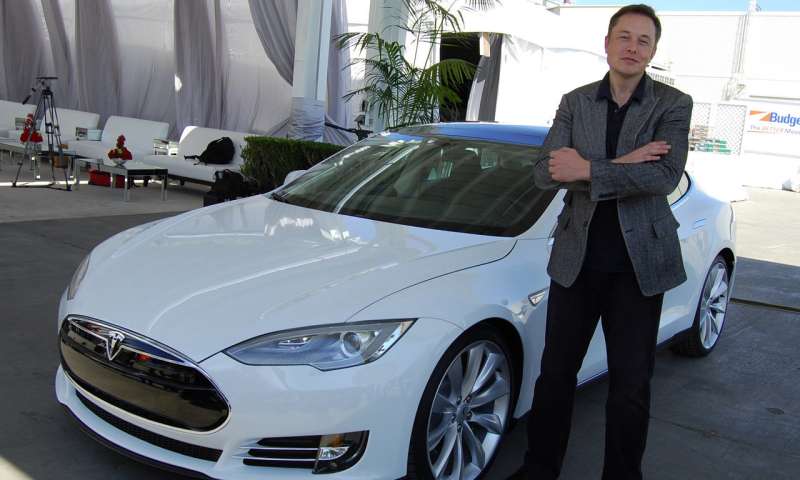Elon Musk, Tesla Factory, Fremont (CA, USA) in 2011. Credit: CC BY 2.0
Elon Musk may soon own Twitter Inc. but the billionaire won't be able to shake his "Twitter Sitter."
A judge on Wednesday rejected Musk's request to ditch his 2018 deal with the U.S. Securities and Exchange Commission that required a company lawyer to screen all his Tesla Inc.-related tweets. The Tesla CEO, who appears to have clinched his bid to buy Twitter, had accused the SEC of harassing him and claimed the agreement violated his free-speech rights.
"Musk was not forced to enter into the consent decree," U.S. District Judge Lewis Liman said in his written opinion. The Tesla CEO "cannot now seek to retract the agreement" by "simply bemoaning that he felt like he had to agree to it at the time" and now "wishes that he had not," Liman said.
Musk, 50, has been sparring with the SEC since he tweeted in 2018 that he had "funding secured" to take Tesla private, sending the shares of the electric-car maker surging. After an investigation, the regulator sued, saying Musk had misled investors. Musk and Tesla ended that dispute by agreeing to each pay $20 million and requiring review of Musk's Tesla-related tweets.
The SEC has argued that Musk freely agreed to the limits and that review of his tweets by a Tesla securities lawyer doesn't amount to government regulation of his speech.
Liman also denied Musk's effort to block an SEC subpoena seeking information from Musk on his tweets, ruling that he's as subject to investigation by the agency as anyone else.
"The court is simply saying we can move to quash these subpoenas when they are compelled," said Musk's lawyer, Alex Spiro. "Nothing will ever change the truth, which is that Elon Musk was considering taking Tesla private and could have—all that's left some half decade later is remnant litigation which will make that truth clearer and clearer."
Liman dispensed with Musk's argument that the SEC lacks authority to seek information from him.
"Musk may wish it were otherwise, but he remains subject to the same enforcement authority—and has the same means to challenge the exercise of that authority—as any other citizen," Liman said. "Indeed, to conclude otherwise would be to hold that a serial violator of the securities laws or a recidivist would enjoy greater protection against SEC enforcement than a person who had never even been accused of a securities law violation."
Liman said such a result would be "perverse."
The case is U.S. Securities and Exchange Commission v. Musk, 18-cv-08865, U.S. District Court, Southern District of New York (Manhattan).
2022 Bloomberg L.P. Distributed by Tribune Content Agency, LLC.






















